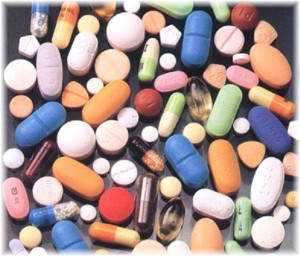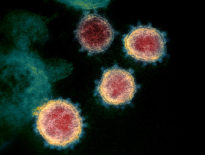
Last week the Food and Drug Administration (FDA) made an announcement that generated scary headlines and resulted in lots of phone calls to me from worried patients. The announcement warned about a contaminant found in some tablets of ranitidine. Ranitidine is an antacid used to treat heartburn and ulcers. It is sometimes sold under the brand name Zantac and is also available generically. It is safe enough to have been available over the counter for years.
The contaminant found in the ranitidine tablets is N-nitrosodimethylamine (NDMA), a compound also found in grilled and cured meat. NDMA can form during the manufacturing of medications if the chemical reactions are not carefully monitored. NDMA has been shown to cause cancer in lab animals, and so is thought to be likely to cause cancer in people.
To put this warning in context, we should recall that since February NDMA was also found in some lots of losartan, valsartan and irbesartan, which are commonly prescribed blood pressure medications. The concentration of NDMA in these batches of medicine was high enough that many lots of medications were recalled, causing shortages and forcing many patients to switch to different medications.
The FDA so far hasn’t ordered any recalls of ranitidine. It said that the amounts of contaminant found in the tested ranitidine tablets “barely exceed amounts you might expect to find in common foods.” Some generic drug makers have voluntarily stopped distributing ranitidine while they investigate.
So, is this trace amount of NDMA dangerous? The alert states that “the FDA is evaluating whether the low levels of NDMA in ranitidine pose a risk to patients. FDA will post that information when it is available.” That’s not very helpful. “The FDA is not calling for individuals to stop taking ranitidine at this time; however, patients taking prescription ranitidine who wish to discontinue use should talk to their health care professional about other treatment options.” That’s also not very helpful. Patients should always talk to their doctor if they want to switch medicines, not their librarian or grocer. Understanding the magnitude of the risk would be more helpful. Is the increased cancer risk comparable to smoking 2 packs per day for 40 years, or is it closer to having one additional hot dog?
I’m glad you asked. An FDA report about the blood pressure medicine recalls states
We initially estimated that if 8,000 people took the highest valsartan dose (320 mg) containing N-Nitrosodimethylamine (NDMA) from the recalled batches daily for four years, there may be one additional case of cancer over the lifetimes of those 8,000 people.
This was their worst-case estimate for the most contaminated lots of valsartan. Using a lung cancer risk calculator I calculated the risk of smoking 1 pack of cigarettes per day for four years (compared to not smoking for those for years). It turns out that for every approximately 54 people who start smoking and smoke 1 pack per day for 4 years, there will be one additional case of lung cancer. So smoking 1 pack per day is 150 times more carcinogenic than taking the most contaminated recalled batch of losartan.
Given that ranitidine batches haven’t been recalled yet, I would guess that the risk of ranitidine is much smaller still. Does that mean that I know for sure that ranitidine is perfectly safe? No. And after all, we only think that that NDMA causes cancer in people by extrapolating from lab animals. To sort this out definitively we would have to conduct a randomized Give Me NDMA Or Placebo For A Decade study. No one is going to sign up for that.
We should also keep in mind how carcinogens work. They make changes (mutations) in cells that make the cells susceptible to other changes. It is these multiple changes over time, usually over decades, that lead to cancer. Smoking today doesn’t cause cancer today. It increases the risk of cancer decades from now. So when my 30 year-old patient calls with concerns about contaminated medicine, I worry that she might live long enough to suffer the consequences of any carcinogens she is ingesting now. When my 90 year-old patient calls, I reassure him that any current exposure is very unlikely to lead to cancer.
So for now, unless the FDA makes further worrisome discoveries or orders recalls, I’m reassuring most of my patients that ranitidine is probably still OK. If you are not reassured, there are alternative antacids that your doctor can recommend, at least until we find out that the alternatives are contaminated too.
Learn more:
Zantac Has Low Levels of a Cancer-Causing Chemical, the F.D.A. Says (New York Times)
Should You Keep Taking Zantac for Your Heartburn? (New York Times)
Statement alerting patients and health care professionals of NDMA found in samples of ranitidine (FDA)
Statement on the agency’s ongoing efforts to resolve safety issue with ARB medications (FDA)

